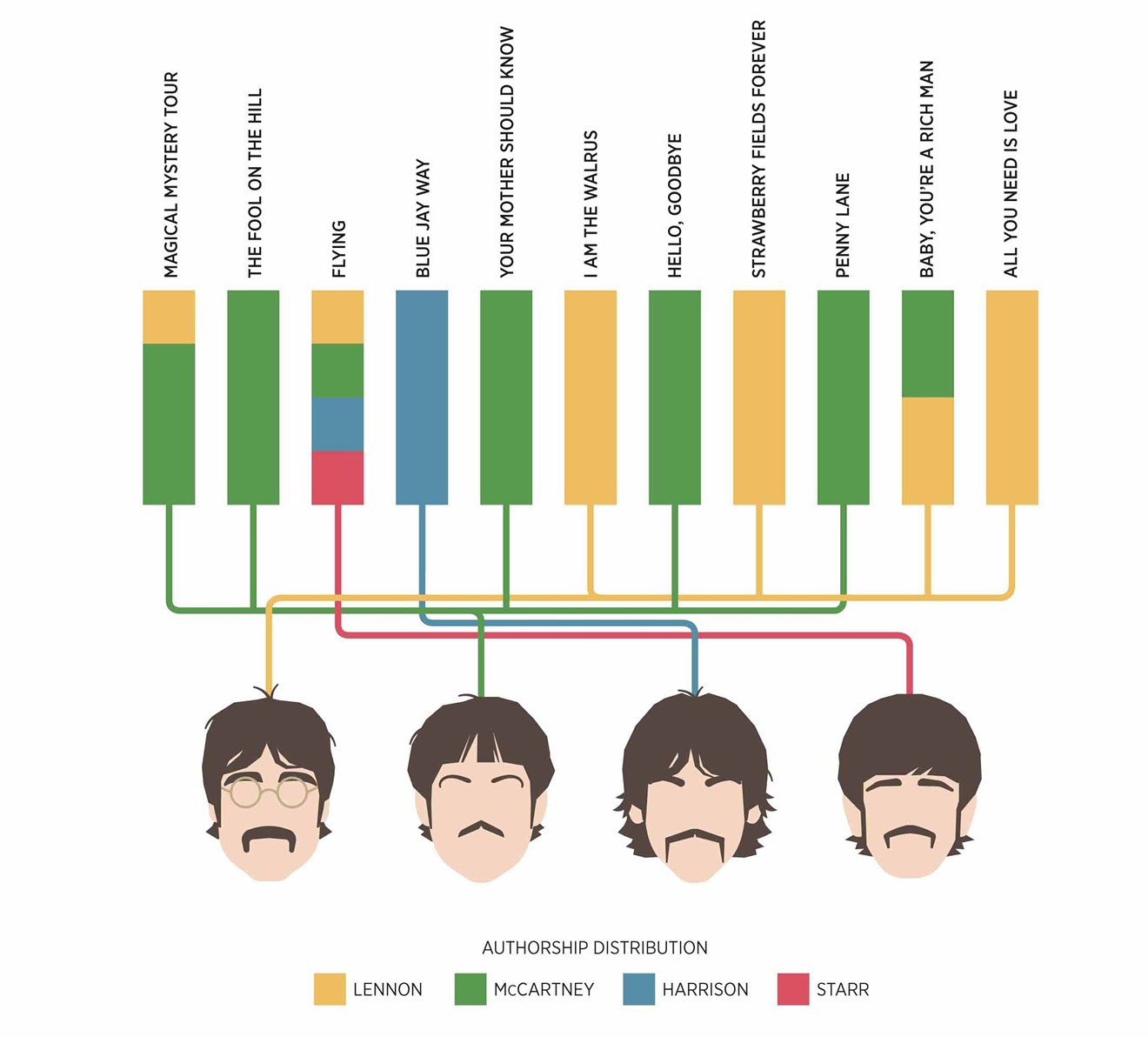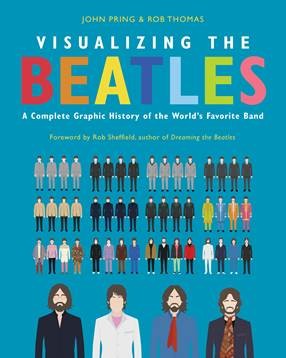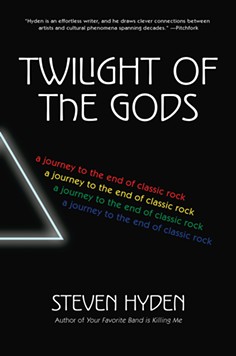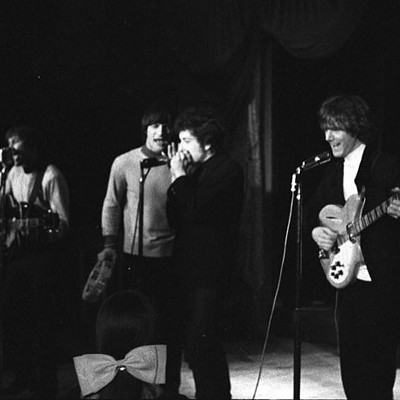Support Us
Houston's independent source of
local news and culture
account
- Welcome,
Insider - Login
- My Account
- My Newsletters
- Contribute
- Contact Us
- Sign out
New Books See the Beatles in a Whole New Way and Ponder the End of Classic Rock
Bob Ruggiero April 23, 2018 5:00AM

"Visualizing the Beatles" breaks down which member wrote what percentage of each and every song they release on albums.
Graphic courtesy of Dey Street Books
[
{
"name": "Related Stories / Support Us Combo",
"component": "11591218",
"insertPoint": "4",
"requiredCountToDisplay": "4"
},{
"name": "Air - Billboard - Inline Content",
"component": "11591214",
"insertPoint": "2/3",
"requiredCountToDisplay": "7"
},{
"name": "R1 - Beta - Mobile Only",
"component": "12287027",
"insertPoint": "8",
"requiredCountToDisplay": "8"
},{
"name": "Air - MediumRectangle - Inline Content - Mobile Display Size 2",
"component": "11591215",
"insertPoint": "12",
"requiredCountToDisplay": "12"
},{
"name": "Air - MediumRectangle - Inline Content - Mobile Display Size 2",
"component": "11591215",
"insertPoint": "4th",
"startingPoint": "16",
"requiredCountToDisplay": "12"
}
,{
"name": "RevContent - In Article",
"component": "12527128",
"insertPoint": "3/5",
"requiredCountToDisplay": "5"
}
]
Visualizing the Beatles: A Complete Graphic History of the World’s Favorite Band
By John Pring and Rob Thomas
288 pp.
$26.99
Dey Street Books
With hundreds of biographies published over decades, there can’t possibly be a completely different way to tell the well-worn story of the Fab Four, right? Wrong. And that’s the truth with this charming, inventive, and utterly unique tome.
By using a combination of infographics, data, numbers, words, and short blurbs, Authors Pring and Thomas chart the band’s story in a visually amazing way. Not surprisingly, their actual day gigs are as graphic artists for major corporations.
With a narrative presented loosely by album release date, their illustrations give a pictorial and information bar-driven representation of everything from what Beatle carried the songwriting load on each tune, maps with Beatle-specific locations, numbers of tour dates, album cover style, and even symbols for every instrument they used (19 on the soundtrack to Help! – including a güiro).
There’s even Word Cloud illustrations that measure the most often-used examples sung on each record. Not surprisingly, “Love” “Girl,” and “Know” are among the most often-repeated.
But the most fun illustrations show the Beatles’ changing hairstyles and fashion leanings, The text is peppered with the nuts and bolts history, but also plenty of fan-nugget info. Like the classic gray collarless suits, while inspired by Pierre Cardin, were actually the work of Douglas Millings. Or among the other titles the band tossed around for Revolver included Bubble and Squeak, Abracadabra, The Beatles on Safari, and After Geography (the last one diehard fans know a play on their frenemies the Rolling Stones, who had just released their own Aftermath).
A fresh, fun, and enticing take on the Beatles history, Visualizing the Beatles makes a ‘60s band very Millennial.
Twilight of the Gods: A Journey to the End of Classic Rock
By Steven Hyden
$25.99
320 pp.
Dey Street Books
Lately, there’s a seeming plethora-of-and-growing list of classic rockers who have recently passed away (Tom Petty, David Bowie, Gregg Allman, Walter Becker), or are getting off the road either mostly or for good (Elton John, Black Sabbath, Eric Clapton, Lynyrd Skynyrd). So this book about both the music culture that created “classic rock” and the state of its practitioners in 2018 could not be more timely.
Part memoir, part criticism, and part pondering both funny and fraught, Hyden’s insightful writing about the genre and its giants makes for compelling and freewheeling page-turning. Whether it’s explaining the difference between Classic Rock (REO Speedwagon’s Hi Infidelity) and classic rock (The Stooges’ Raw Power), its original and new fans, or just how the radio format began in the mid-‘80s with nostalgia for songs not yet even in their teen years, he offers a lot on the continued popularity of bands.
And many of those bands, their histories, and their music are steeped in a unique mythology. From the Led Zeppelin Mud Shark Incident to Paul Is Dead to the “Satanic” message of the Eagles’ Hotel California to Pink Floyd's acid casualty Syd Barrett and Jim Morrison's exposed penis the myths can loom larger than the music. Hyden touts them all, and his own precarious path in modern times reflecting on what that meant to him then as a teen and now as a middle-aged man.
Of course, the questions “Is Rock Dead?” and “Who’s Gonna Take Their Place” are addressed, but Hyden offers that our classic rock heroes are dinosaurs. Not for their current ages, but as dominant, powerful creatures who once ruled all others and the likes of which will never be seen or heard again.
After all, who among today’s most popular rock bands will be relevant and listened to in 2068? The Foo Fighters? The Killers? Imagine Dragons? Fucking Fall Out Boy? Not even U2 or Pearl Jam or Metallica will likely have the generations-removed relevance and staying power of a Beatles or Who or Stones or Zep or Springsteen. Reissues of their decades-old work or every guitar fart or alternate take that Jimmy Page cut in the studio can still outsell the biggest modern rock records. And especially in an era where pop and hip-hop rule and the public wants playlists and not albums.
Make no mistake, Winter is Coming for all our Classic Rock Icons. So enjoy them while they’re still here. And on whatever musical format comes, vanishes, then comes back as retro cool. I wouldn’t hold on to those old 8-tracks, though.
KEEP THE HOUSTON PRESS FREE...
Since we started the Houston Press, it has been defined as the free, independent voice of Houston, and we'd like to keep it that way. With local media under siege, it's more important than ever for us to rally support behind funding our local journalism. You can help by participating in our "I Support" program, allowing us to keep offering readers access to our incisive coverage of local news, food and culture with no paywalls.
Bob Ruggiero has been writing about music, books, visual arts and entertainment for the Houston Press since 1997, with an emphasis on classic rock. He used to have an incredible and luxurious mullet in college as well. He is the author of the band biography Slippin’ Out of Darkness: The Story of WAR.
Contact:
Bob Ruggiero
Trending Music
- Country Rock Thrives with Gene Clark and Flying Burrito Brothers for Record Store Day
- Bruce Robison Is The Eternal Song Hunter
- Low Cut Connie Keeps One Foot In The Gutter
-
Sponsored Content From: [%sponsoredBy%]
[%title%]

Don't Miss Out
SIGN UP for the latest
Music
news, free stuff and more!
Become a member to support the independent voice of Houston
and help keep the future of the Houston Press FREE
Use of this website constitutes acceptance of our
terms of use,
our cookies policy, and our
privacy policy
The Houston Press may earn a portion of sales from products & services purchased through links on our site from our
affiliate partners.
©2024
Houston Press, LP. All rights reserved.







